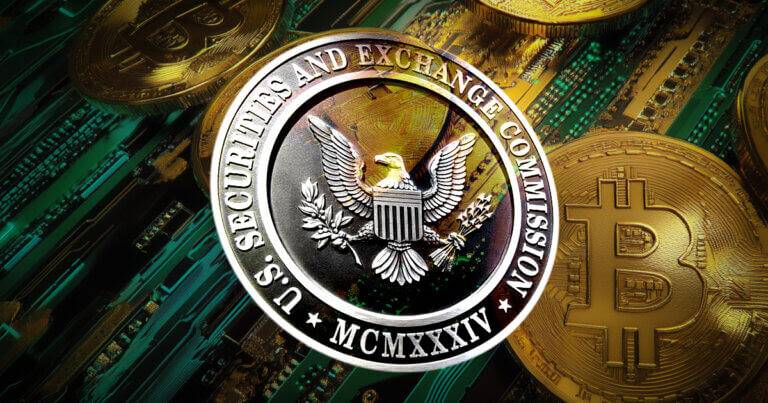The meeting focused on Crypto regulation, including defining the taxonomy of digital assets and the regulation of ETP staking.
Source: cryptoslate
Translation: Blockchain Knight
On February 21, the U.S. Securities and Exchange Commission (SEC) Crypto Special Working Group met with Strategic Executive Chairman Michael Saylor, representatives from the Crypto Assets Innovation Council (CCI), and the MITRE Corporation to discuss the best approach to regulating Crypto assets in the United States.
According to a memorandum shared by the SEC, the special working group staff reviewed a framework document during the meeting that defines the taxonomy and regulatory structure for Crypto.
The document classifies digital commodities, including BTC, digital securities linked to issuers, fiat-backed digital currencies, digital tokens with specific use cases, non-fungible tokens (NFTs) for unique digital applications, and asset-backed tokens (ABT) linked to physical commodities.
The document clarifies the rights and responsibilities of issuers, exchanges, and asset owners by calling for fair disclosure, transparent custody practices, and compliance with local laws. The framework also proposes standardized disclosures, industry-led compliance processes, and limitations on the costs of asset issuance and maintenance.

Additionally, Saylor's speech emphasized the potential for faster asset issuance, lower costs, broader market access, and transformations in capital markets that could be reinforced by strategic measures such as BTC reserves to strengthen the dollar and reduce national debt.
Revisiting Staking Operations
Representatives from CCI suggested clarifying the regulatory treatment of staking services, passive blockchain data platforms, and incentive-based rewards.
The meeting included 20 representatives from various Crypto sector companies, including Coinbase, a16z, and the Filecoin Foundation.
They recommended issuing guidance or a notice of no-action relief to confirm that genuine staking services and related infrastructure providers are not subject to securities laws. This change could allow Crypto exchange-traded products (ETPs) to include staking activities in their filings.
CCI also suggested that platforms providing only access or data display functions should be excluded from the definitions of brokers, exchanges, or alternative trading systems when they offer blockchain exploration tools and non-custodial Web3 markets.
The proposal also called for guidance to define NFTs as non-securities, primarily used as artwork, collectibles, virtual land, or similar non-financial applications.
Other recommendations included issuing no-action letters, pausing enforcement actions solely for compliance, and modifying rule-making processes to consider decentralization and on-chain transactions. These measures aim to balance investor protection with support for industry innovation.
The council urged the SEC to draw on previous decisions and industry dynamics to enhance regulatory clarity and investor protection in the U.S.
Research-Driven Insights on Stablecoins
MITRE introduced its research and development activities focused on the Crypto market and its regulatory implications.

As a federally funded research and development center under the U.S. Department of the Treasury, the company outlined its work on a logic-based regulatory approach for stablecoins, developed workflow tools to support comment processing, and used a policy visualization system to identify regulatory dependencies.
MITRE also detailed its digital asset threat-sharing platform and the cyber threat framework in the Crypto space.
The research findings discussed at the meeting revealed hidden centralization issues in decentralized finance (DeFi), emphasized the necessity of bank stress testing in scenarios combining DeFi with traditional finance, and suggested implementing circuit breakers at the smart contract level to mitigate risk propagation.
MITRE's technical work aims to support the SEC's rule-making by providing data-driven insights and innovative tools to establish a regulatory framework capable of addressing the evolving challenges in the digital asset ecosystem.
The meeting concluded with a comprehensive review of various proposals and research aimed at establishing a regulatory framework that supports innovation while ensuring market integrity.
免责声明:本文章仅代表作者个人观点,不代表本平台的立场和观点。本文章仅供信息分享,不构成对任何人的任何投资建议。用户与作者之间的任何争议,与本平台无关。如网页中刊载的文章或图片涉及侵权,请提供相关的权利证明和身份证明发送邮件到support@aicoin.com,本平台相关工作人员将会进行核查。



